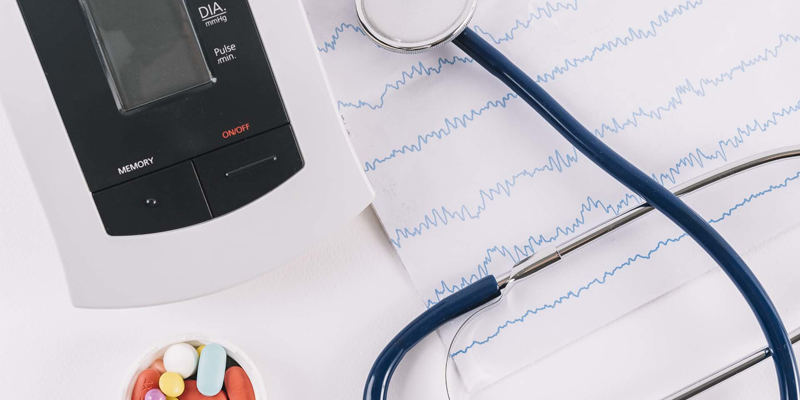Accelerated hypertension is a severe and rapidly progressive form of high blood pressure that poses a significant risk to health. Unlike regular hypertension, which develops gradually over many years, accelerated hypertension can cause serious damage to vital organs within a short period, often within weeks or months. This condition is characterized by a sudden and marked increase in blood pressure, usually with readings exceeding 180/120 mm Hg. The rapid escalation in pressure can lead to acute target organ damage, including the heart, kidneys, brain, and eyes.
Symptoms And Diagnosis
Symptoms
The symptoms of accelerated hypertension can be quite dramatic and may include:
Severe Headaches: Persistent and intense headaches that are often resistant to standard pain relief methods.
Visual Disturbances: Blurred vision or even temporary blindness due to damage to the retinal blood vessels.
Nausea and Vomiting: These symptoms can be a result of increased intracranial pressure.
Chest Pain: Indicative of cardiovascular stress or potential heart attack.
Shortness of Breath: May suggest pulmonary edema or heart failure.
Confusion or Decreased Alertness: These neurological symptoms arise from hypertensive encephalopathy.
SEE ALSO: What Types of Doctors Treat Pulmonary Hypertension?
Diagnosis
Diagnosing accelerated hypertension requires careful and prompt medical evaluation. Key diagnostic steps include:
Blood Pressure Measurement: Repeated measurements confirm persistently high readings.
Physical Examination: Checking for signs of organ damage such as heart failure, retinopathy, or neurological deficits.
Laboratory Tests: Blood tests to assess kidney function (creatinine, blood urea nitrogen), electrolytes, and cardiac markers.
Imaging Studies: Echocardiogram, chest X-ray, and brain imaging (CT or MRI) to evaluate the extent of organ damage.
Causes And Risk Factors
Underlying Causes
Accelerated hypertension often arises from an existing, poorly managed hypertension. Several factors can precipitate this condition:
Chronic Kidney Disease: Impaired kidney function can exacerbate blood pressure control.
Secondary Hypertension: Conditions such as pheochromocytoma, primary aldosteronism, and Cushing’s syndrome.
Medications: Noncompliance with antihypertensive therapy or interaction with other drugs like NSAIDs.
Substance Abuse: Cocaine or amphetamine use can trigger severe hypertension.
Risk Factors
Certain populations are at higher risk for accelerated hypertension:
Age: Middle-aged and older adults.
Race: African Americans are more prone to severe hypertension.
Gender: Males may be at slightly higher risk.
Lifestyle Factors: Smoking, excessive alcohol intake, high-sodium diet, and lack of physical activity.
Complications And Prognosis
Complications
Accelerated hypertension is a medical emergency due to its potential to cause rapid and irreversible damage to multiple organs:
Cardiovascular: Heart failure, myocardial infarction, aortic dissection.
Renal: Acute kidney injury or chronic kidney disease.
Neurological: Stroke, hypertensive encephalopathy.
Ocular: Retinal hemorrhage, papilledema.
Prognosis
The prognosis of accelerated hypertension depends significantly on the promptness and effectiveness of treatment. Early intervention can mitigate long-term damage and improve survival rates. However, delayed treatment or persistent uncontrolled hypertension can lead to fatal outcomes.
Management And Treatment
Immediate Treatment
The primary goal in managing accelerated hypertension is to reduce blood pressure rapidly but safely to prevent further organ damage.
Treatment strategies include:
Hospitalization: Most patients require admission to an intensive care unit (ICU) for close monitoring.
Intravenous Medications: Drugs like nitroprusside, labetalol, or nicardipine are commonly used to achieve rapid blood pressure control.
Oral Antihypertensives: Transitioning to oral medications once blood pressure stabilizes.
Long-term Management
After the acute phase, ongoing management involves:
Medication Adherence: Ensuring the patient takes prescribed antihypertensive drugs consistently.
Lifestyle Modifications: Encouraging dietary changes (low sodium, DASH diet), regular physical activity, and cessation of smoking and alcohol.
Regular Monitoring: Frequent follow-up visits to monitor blood pressure and organ function.
Prevention
Preventing accelerated hypertension involves managing risk factors and maintaining good blood pressure control:
Routine Health Checks: Regular blood pressure screenings, especially for high-risk individuals.
Patient Education: Informing patients about the importance of medication adherence and lifestyle changes.
Monitoring and Adjusting Treatment: Regularly reviewing and adjusting antihypertensive therapy to ensure optimal control.
Conclusion
Accelerated hypertension is a critical condition that requires immediate medical attention to prevent severe complications.
Understanding the symptoms, risk factors,and treatment options is essential for effective management. By ensuring prompt diagnosis and intervention, and by adhering to long-term management strategies, patients can significantly improve their prognosis and reduce the risk of life-threatening complications.

